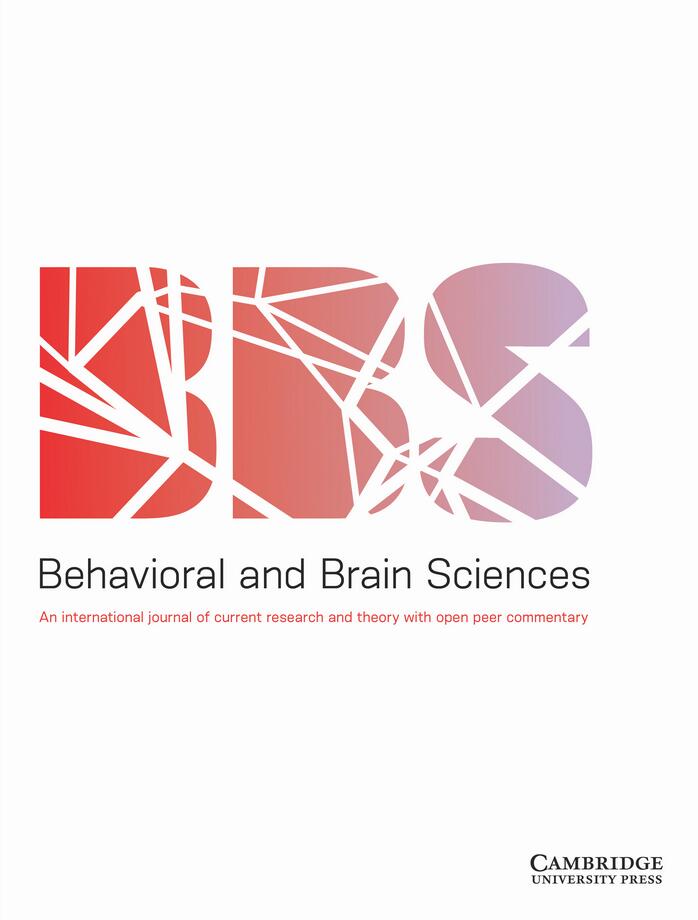连接人格动力学和心理计算过程的理论。
IF 13.7
1区 心理学
Q1 BEHAVIORAL SCIENCES
引用次数: 0
摘要
整体特质理论(以及其他关于人格的动态理论)可以阐明动机状态变成特质的过程。心理计算过程是驱动特质表现的部分解释机制。整体特质理论的实证研究为今后心理计算过程的研究指明了方向。本文章由计算机程序翻译,如有差异,请以英文原文为准。
Connecting theories of personality dynamics and mental computational processes.
Whole Trait Theory (and other dynamic theories of personality) can illuminate the process by which motivational states become traits. Mental computational processes constitute part of the explanatory mechanisms that drive trait manifestations. Empirical work on Whole Trait Theory may inform future research directions on mental computational processes.
求助全文
通过发布文献求助,成功后即可免费获取论文全文。
去求助
来源期刊

Behavioral and Brain Sciences
医学-行为科学
CiteScore
1.40
自引率
1.70%
发文量
353
期刊介绍:
Behavioral and Brain Sciences (BBS) is a highly respected journal that employs an innovative approach called Open Peer Commentary. This format allows for the publication of noteworthy and contentious research from various fields including psychology, neuroscience, behavioral biology, and cognitive science. Each article is accompanied by 20-40 commentaries from experts across these disciplines, as well as a response from the author themselves. This unique setup creates a captivating forum for the exchange of ideas, critical analysis, and the integration of research within the behavioral and brain sciences, spanning topics from molecular neurobiology and artificial intelligence to the philosophy of the mind.
 求助内容:
求助内容: 应助结果提醒方式:
应助结果提醒方式:


